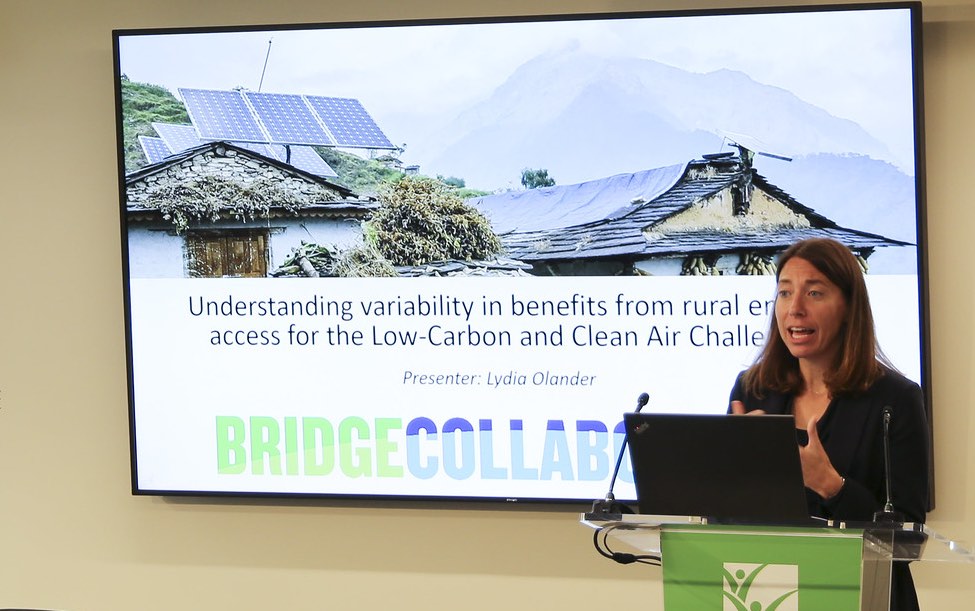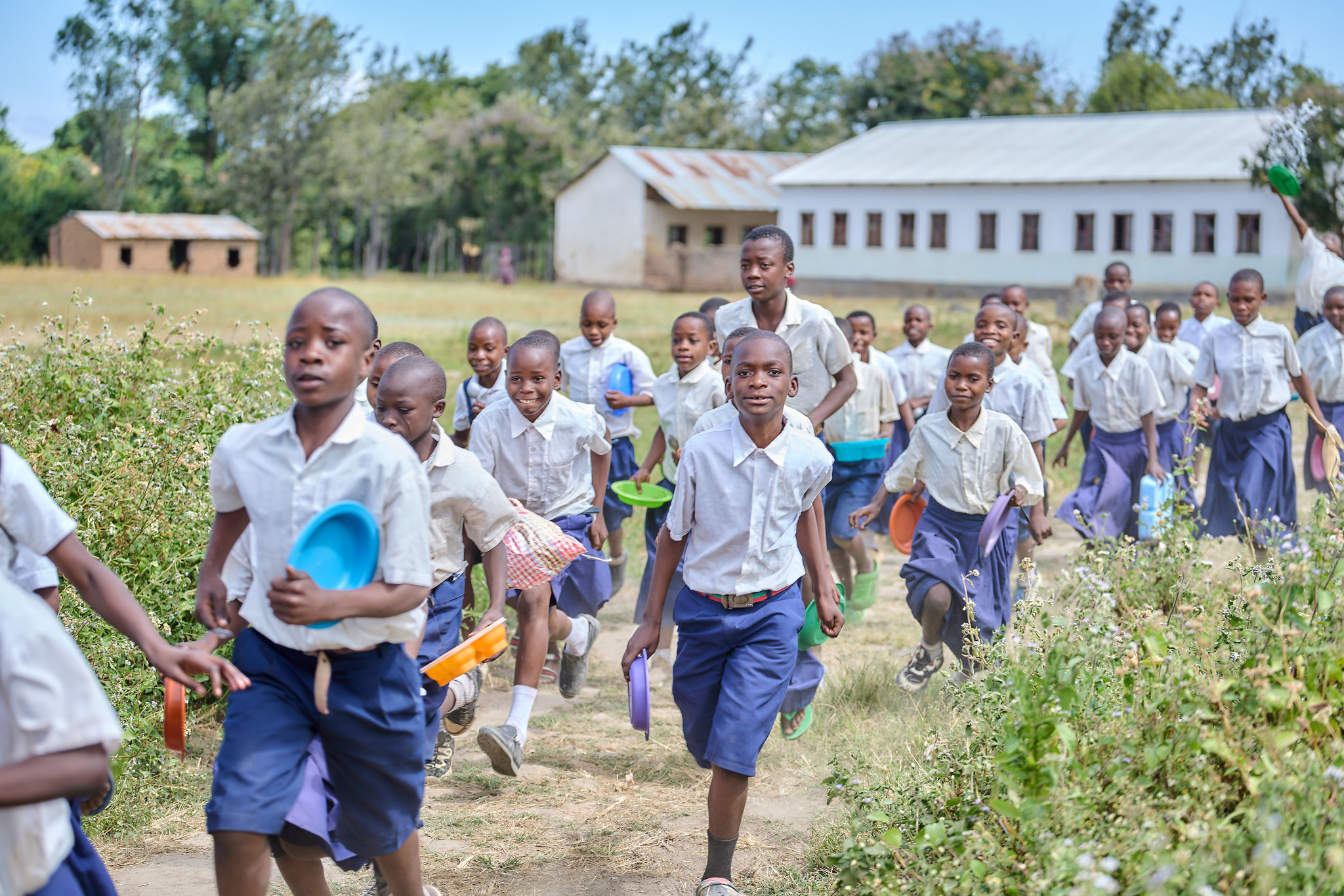The world faces complex, interwoven development challenges. Issues such as climate change, malnutrition, and poverty require ambitious, holistic, and integrated efforts. A new report by the Bridge Collaborative and UN Development Programme (UNDP)—Bigger Change Faster: Integrated Development, Health, and Environment Actions for a Sustainable Future—lays out ways to meet three of these challenges: Clean air and renewable energy; transforming the global food system; and sanitation and wastewater improvements.
An Oct. 23 IFPRI policy seminar explored the report and its implications. The Bridge Collaborative is a partnership between the Nature Conservancy, PATH, Duke University, and IFPRI that fosters cooperation across sectors to drive change faster for key societal and planetary goals. IFPRI Environment and Production Technology Division Deputy Director Claudia Ringler is a Bridge Collaborative Secretariat member and moderated the discussion.
Bridge Collaborative Director Josh Goldstein described the program’s pillars: Amplifying impacts, activating capacity, and unlocking resources, noting that the Sustainable Development Goals (SDGs) are a roadmap that the global community can use to address various cross-sectoral development challenges simultaneously.
Goldstein also noted the report’s key recommendations, including: Integrating environmental concerns within national dietary guidelines; expanding interventions to empower smallholder women farmers; expanding safe sanitation and wastewater treatment; promoting sustainable agricultural intensification to help improve rural livelihoods, especially for the poor; and supporting more open trade regimes that help to redistribute food production.
Following Goldstein’s overview, presenters reviewed several case studies supporting the Collaborative’s goals as laid out in the report.
PATH Director of Strategic Initiatives & Lead for Nutrition Innovation Katharine Kreis, a member of the Bridge Collaborative Secretariat, addressed the potential of lab-grown cultured proteins. Citing the growing global demand for animal-source foods, Kreis explained: “Our goal…is to assess the extent to which cultured proteins, particularly egg and dairy, can play a meaningful role in supporting global nutrition, in a more sustainable way relative to proteins that are produced through traditional agricultural practices … We’re hoping to use the results to [make] recommendations on how their uptake might influence and contribute to global health and sustainable development moving forward.”
Electrification can bring benefits such as increased food and water security, explained Lydia Olander, director of the Ecosystem Services Program at Duke’s Nicholas Institute for Environmental Policy Solutions, also a Secretariat member. Yet, she added, “researchers still lack a good understanding of the precise factors linking electrification to improved public health and development.” The Bridge Collaborative’s work in examining the relationship between rural electrification and household incomes aims to get a better understanding of those factors—and ultimately to assess how a policy or program can achieve clean energy for all in different places; electrification projects that do not take contextual factors into account are likely to fail or, at least, to not achieve their full potential.
“Having a gender lens can help us achieve co-benefits with other outcomes,” said IFPRI Senior Scientist Elizabeth Bryan, stressing that gender considerations are key to achieving cross-sectoral transformative change.
It makes sense to collaborate with women in developing interventions, Bryan said, such as designing clean cookstoves according to their local preferences and practices, and jointly assessing the labor and health benefits. Such efforts are key to more widespread adoption of clean cookstoves and a shift away from traditional biomass cookstoves, which contribute to greenhouse gas emissions and poor health.
Women should also play a central role in improving food and nutrition security through sustainable agricultural intensification, as well as managing water for agriculture and domestic use to minimize health risks and take advantage of opportunities for nutrition and health improvements. Just as important to viewing women as instruments for positive change, she said, is ensuring that they benefit equally from interventions and are better able to make strategic life decisions.
Robin Martino, Chief of Party of Biodiversity Results and Integrated Development Gains Enhanced (BRIDGE)—a USAID project that is distinct from the Bridge Collaborative—reflected on parallels between the two programs and discussed some of the ways that BRIDGE collaborates across other USAID development sectors. “There’s really not a one size fits all way to integrate with other sectors, it takes a lot of different opportunities,” she said. There is thus a need to be nimble and creative. Single sector activities can also incorporate tools from other sectors, such as the use of public heatlh protocols to advance environmental outcomes, evidence, and expertise.
To further advance integration and learning around it, the Bridge Collaborative is currently working with 50 teams who have expressed interest to implement cross-sectoral programs under the Bridge Spark Fund.
Katarlah Taylor is an IFPRI Senior Events Specialist.







